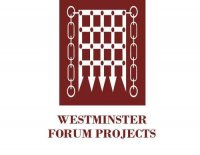Next steps for literacy and oracy in England's schools
Countdown to Reservations End Date

Event Details
Description
This one day online conference will consider next steps for literacy and oracy in schools across England.
With government’s target of 90% of primary school children achieving expected standards in reading, writing and maths by 2030, delegates will assess what will be needed for the target to be met in reading and writing.
The conference takes place following:
• publication of recent PISA 2022 rankings, with England ranked 13th for reading amongst 15 year olds
• Labour’s Breaking Down the Barriers education mission statement, detailing plans to implement speaking skills into lessons throughout the curriculum
• DfE's update to The reading framework guidance to include pupils up to year 9, as well as development of fluency and promotion of a reading for pleasure culture in schools
• England being ranked 4th out of 43 comparative countries in PIRLS, a study which measures the reading ability of 9 to 10 year olds.
It will be an opportunity for stakeholders and policymakers to consider best practice in the teaching of literacy and oracy, current standards, curriculum design, and the way forward for teacher training and development from the early years through to GCSE.
Following recent reports of record-high rates of children with speech and language challenges following the pandemic, delegates will discuss strategies to aid identification of struggling children by early years practitioners and next steps for supporting children, parents and carers, including the role of Family Hubs.
We also expect discussion on how reading skills can be developed across the curriculum.
Further sessions will explore opportunities to measure progress in oracy and implications for Ofsted inspections, as well as potential effects on social mobility, looking at how teaching oracy can raise student aspirations and success in life after school, including raising awareness of accent bias.
Overall, sessions in the agenda include discussion on:
• Literacy and oracy across the curriculum:
◦ defining what high-quality oracy lessons will look like within the curriculum - developing a cross-curriculum approach - progressing towards 2030 targets
◦ priorities for enabling best practice in the teaching of literacy and raising attainment - options for teacher CPD - improving support for struggling students
• Early years provision: developing effective early intervention - support for parents and carers - the role of Family Hubs - the transition to primary school - COVID recovery
• the primary curriculum: system capacity for catch-up programmes - impact on students and teaching staff - evaluating effective teaching methods - supporting transitions to KS3
• KS3: instilling quality and standards into the curriculum, teaching and learning - implementation of extra-curricular support - best practice in preparing children for progression to GCSE English
• Student support: improving support for children who fall behind - identifying and providing effective early intervention
• Easing transitions:
◦ examining the impact of literacy and oracy in aiding student transitions and progression post-16 - increasing social mobility
◦ student progression to higher education and employment - the value of oracy in the workforce.

